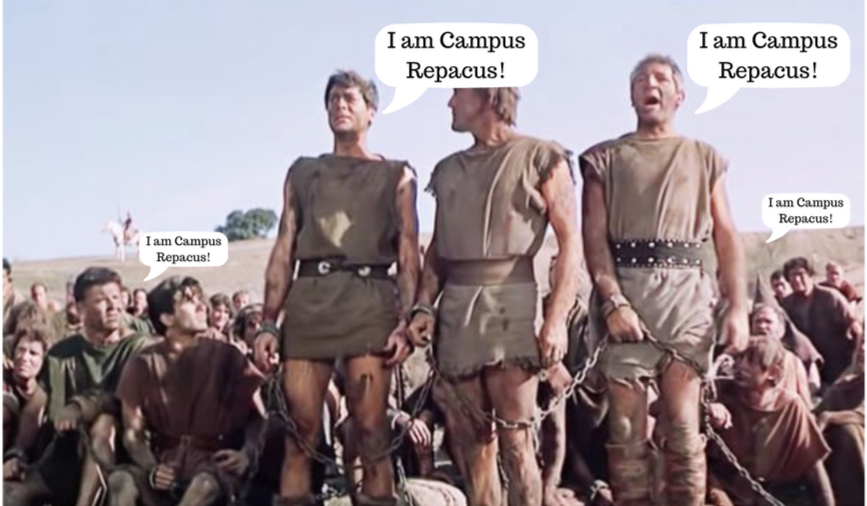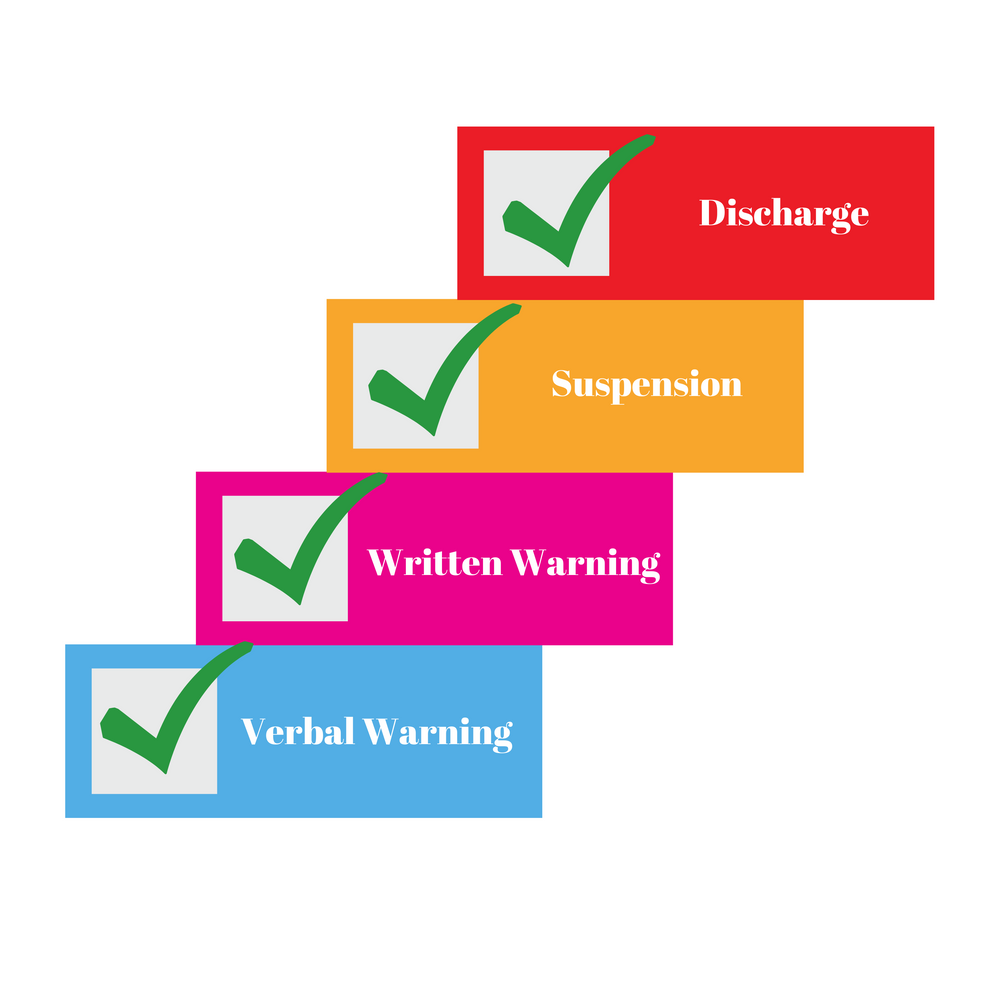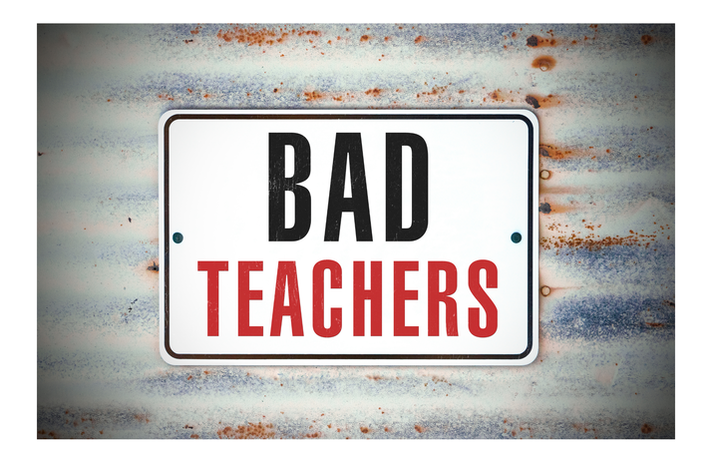|
By L. Spriggs Not really. A grievance can only be filed against your employer. If you're having issues with a co-worker, perhaps dealing with workplace bullying or harassment, for instance, you would need to file a complaint with an administrator first. If the administration fails to address the issue, then you or the union might have cause to file a grievance against the administration if their failure to act can be construed as a violation of the contract or your workplace rights.
Another alternative would be to complain to HR. However, remember that HR works for the interests of the district and the school board, and those interests might not always align with yours, so you might not get the outcome you desire. You might also consider looking into the union's constitution. Most Constitutions and by-laws provide means to remove a member from the ranks if they're conducting themselves in ways that are unbecoming to union membership. Finally, unlike workplace bullying or harassment, sometimes an issue might not be serious enough to involve the administration at all. Don't forget that, especially for less serious issues, you always have the option of asking your department chair or another fellow union member to assist in mediating an issue first. By L. Spriggs Just Cause Standards: How Unions Defend Their Members Against Unfair Discipline
Let’s say you’ve been through the process of being called to the principal’s office for some infraction, you’ve had a meeting with the administration, and the administration has decided to move forward with discipline, but the member, or union leadership, believes the discipline is unfair or unjust. What happens next? At that point, the member or the union may decide to move forward with a grievance, or formal complaint, against the district. The specific grievance process is outlined in our bargaining agreement. In brief, if the union and the administration cannot satisfactorily resolve a discipline issue informally, the union can submit the complaint to binding arbitration, which means a neutral, independent arbitrator will review the issue and decide whether the discipline was justified or not. There are seven standards that arbitrators generally refer to when determining whether a particular disciplinary action was justified, and these are called the just-cause standards. They include prior notice, substantial evidence, progressive discipline, recent enforcement, consideration of mitigating or extenuating circumstances, equal treatment, and due process. Whenever your union is tasked with defending you against unfair discipline, your representative should be familiar with how these just-cause standards might apply in your particular situation, and be able to help prepare your case for arbitration. By L. Spriggs / Question submitted anonymously Member Question: "I've had to explain to a number of people that the union doesn't work to discipline 'bad' teachers. Maybe you could provide an explainer of why that is and what the options are?"
For one thing, unions are legally forbidden from violating the rights of their members, so taking on the role of punishment risks complicated and expensive court cases when they get it wrong, which often means dolling out punishments is not really worth the risk unless it’s to expel a member for something particularly egregious, such as embezzlement, assault, or abuse of power. The only other real recourse unions have besides expulsion is fining, and fines have been challenged in the courts time and again, with unions often losing those cases. Again, pursuing fines is not really worth the risk of drawn-out court cases in most situations. Either way, fines are typically reserved for crossing picket lines or other union-related issues. Regardless, unions exist to empower workers, protect their rights, and improve working conditions, not to add additional layers of management. Furthermore, punishing employees is management’s responsibility, and when a union performs that role it lets management off the hook for actually managing the workplace. Instead of asking why unions don’t punish members, it might be better to ask why management isn’t using the many tools at its disposal to motivate, discipline, or fire employees who aren’t passing muster. Finally, employers like to argue that they're afraid of dolling out punishments because the union is too powerful, but a well-managed workplace that follows legal precedent and doesn't violate the rights of its employees in the process really has nothing to fear from unions. The real problem is that many workplaces are simply poorly managed... By L. Spriggs In a nutshell, your employer can't discipline you for violating a rule or standard if they haven't made clear what the rule or standard is by notifying you prior to the offensive behavior.
It's an employer's duty to establish rules and procedures of conduct in the workplace; otherwise, how is an employee to know what is allowed and what is forbidden? For that reason, it's also their duty to notify you of those rules and procedures as well as any potential penalties that may result. Some behaviors, however, are self-evidently wrong, and employers aren't required to publish rules about those behaviors (e.g., lying, stealing, fighting, sleeping on the job, etc.), so keep in mind you can still be disciplined for such offenses even without the rule having been previously posted anywhere. Employers can publicize rules in a variety of ways, such as memos, bulletin boards, emails, faculty meetings, announcements, contracts, etc., and the assumption is that employees read and understand rules that are posted or disseminated in the workplace. In other words, if you don't read your emails and you end up missing a posted rule as a result, the union can't claim ignorance on your behalf in order to get you out of a punishment, so if you're reading this and you're one of those people who either proudly or sheepishly claims to not read their emails, start reading your damn emails if you expect your union to have your back. By L. Spriggs When disciplining employees, an employer must issue discipline that allows the employee to correct or improve their behavior. As teachers, we know that classroom discipline should seek to correct misbehavior, not punish or humiliate, and workplace discipline should work the same way. This is why arbitrators generally agree that employers should apply the lowest penalty that is likely to prevent further offenses. There are exceptions to this standard, of course, that fall under the category of an egregious offense, which is basically something so heinous that the administration could fire you on the spot. People always like specific examples of what constitutes an egregious offense, so here are a few things not to do. Don't batter another teacher, student, or administrator with an open-handed slap even if they made an inappropriate joke about your significant other. When collecting money for a fundraiser, don't take your "cut off the top" before depositing the cash. Don't sell a student one of your special gummy bears even though they told you they have a medical marijuana card and just forgot to take their daily dose before they left for school. Don't falsify your transcripts using photoshop and a custom embosser you ordered online from a Chinese website in order to "fast-track" your horizontal movement on the pay scale because you believe ''they just hand out diplomas like participation trophies these days anyway" and "if they'll give [name redacted] a doctorate" then you definitely deserve one but don't think you should have to pay tens of thousands of dollars to prove it. Egregious offenses aside, progressive discipline usually requires a verbal or written warning first, followed by a suspension or two, and then dismissal. After a verbal or written warning, if an employee becomes a repeat offender, the employer can then issue a more substantial punishment as long as the prior discipline was documented and actually resulted in discipline, since "[i]t's unfair to base punishment on an event that the employee was not able to challenge in the grievance process," according to veteran labor lawyer Robert M. Schwartz. Any current punishment should also be somewhat related to any previous discipline, and discipline must be clearly explained to the employee either in written form or during the grievance process. Finally, some cases may fall into the "last-straw" category, which is a situation where an employee "commits a continuous series of minor transgressions" and the employer considers the employee to be "hopelessly incorrigible" (We all know the type.) In such a case, an "arbitrator may uphold a last-straw discharge if the pattern of unsatisfactory conduct is lengthy, reprimands have been issued, counseling has been attempted, a final warning was provided, and the employee committed an additional improper act (Schwartz)." By L. Spriggs Being non-tenured basically means you're on probationary status for the first four years before your full due-process union protections kick in. For your first three years, you can be dismissed for any non-discriminatory reason, and the district need not give you that reason. In your fourth year, however, they must provide their specific reasoning, which makes it easier to challenge a dismissal. For this reason, school districts are actually encouraged to dismiss poorly performing teachers in the first three years instead of waiting, which means if you've made it to the fourth year without any previous evaluative or disciplinary issues then there's a good chance you'll earn tenure.
Furthermore, the school board is required to notify you whether you're being rehired or dismissed the following year at least forty-five days prior to the end of the current school year. Something else that's good to know is that thanks to new rules for tenure under the PERA law, you're tenured after only 3 years if you receive 3 consecutive annual evaluations of "Excellent." Finally, if you ever have any issues or questions within those first four years, never hesitate to contact someone in the union for guidance or advice. You're still a member, after all. By L. Spriggs Unions are legally required to hold elections every few years. (The number of years varies depending on the type of union.) During these elections, the union's membership elects an executive board, also sometimes referred to as the executive council. This elected group of representatives who take care of the day-to-day responsibilities for the union mostly just approve budgets, run elections, and pay bills, but from time to time they will also discuss issues affecting the school and the membership, communicate information to the membership, and appoint committees to complete various tasks on the membership's behalf, among other things. Boards vary in size depending on the union, and some are as small as just two or three people. The executive board of a union is legally bound to conduct business by following very specific procedures to ensure members are represented fairly and equally. Furthermore, no elected member of the board has more power than another. Even the president of a board gets only one vote and cannot override a decision of the board as a whole. Each meeting of a board is supposed to follow an official order of business, or agenda, and there are specific rules and guidelines for how discussion takes place, how votes are cast, etc. You may think this is all rather stuffy and formal, but these rules serve to help prevent the board from being hijacked by members, or factions of members, with political agendas or more sinister machinations. Ultimately, it's important to understand that our Local 434 Executive Board has a duty to act on behalf of the membership as a whole, and the power of our union—any union—always resides with the membership, not its executive board or any other elected member. "[T]he power of our union—any union—always resides with the membership, not its executive board or any other elected member." By L. Spriggs  We would all benefit as a union if everyone were knowledgeable enough to advocate on behalf of a fellow member at a moment’s notice. Technically, any member may represent another. In fact, sometimes you might not prefer your elected representative for whatever reason—perhaps you've had a previous confrontation or a difference of opinion or philosophy on the particular issue at stake, for instance. For that reason, it's important to know that you can always choose another member to represent you in meetings with the administration. Although, it's still beneficial for the officially-elected campus representatives to know about issues affecting members within the workplace. This is because the way in which your individual issue is dealt with or resolved may impact everyone else by setting precedent for discipline. Either way, a good representative should have a working knowledge of the contract, the grievance process, the law, and your rights in the workplace. They should also be articulate and capable of presenting facts and information on your behalf and in your favor during a meeting. There are two situations when a union or union representative could help you concerning discipline: either the administration is investigating a situation in order to decide whether discipline is necessary, or they've already decided on discipline and that discipline has violated the contract or your due process rights. In the first instance, which is the focus of this post, you’ll likely want union representation during any investigatory meetings. In fact, the union and the administration have contractually agreed to first meet informally to solve workplace complaints before moving ahead with a formal grievance. Before one of these meetings, you have the right to talk with your union representative privately. During one of these meetings, your union representative may ask clarifying questions on your behalf, may request more information from the administrator, may make requests for the administrator to rephrase or clarify questions, and may provide more information to the administrator at the end of the meeting. Now, you might be thinking, "I could do all of those things for myself. Why do I need a union rep. if that's all they can do?" And for some of you, you're absolutely right. However, unionized employees actually have quite a few more legal protections against unfair discipline, and we'll discuss those protections in more detail in future posts. Furthermore, a company will often handle a situation quite differently once they know the union is involved, which tends to benefit even members who are otherwise perfectly capable of advocating for themselves. We often hear stories of unions protecting the jobs of undeserving teachers. I don’t plan to focus on those outliers too much here or in future newsletters, but I’d like to address it in brief. Unions are required by law to protect all members’ rights. They can’t pick and choose whose rights to protect, and they have no legal say in the hiring and firing process. In fact, even if a union removes a member from its ranks for unprofessional, unethical, or egregious behavior, it’s still legally obligated to represent the employee.
A union offers very little protection against justified discipline or termination as long as management follows the contract and documents and carries out discipline in accordance with the law and due process. Essentially, unions don’t protect "bad" teachers; instead, administrators do when they fail to properly document discipline and follow legally enshrined due process protections, such as providing appropriate feedback and remediation for mistakes. Unions are simply adhering to a legal obligation to advocate for all members. Fun stuff.
Every union, once formed, must create a constitution and bylaws. Nowadays, just referring to them as bylaws is fine. Having bylaws isn’t optional. It’s required by federal law, and once created, unions are legally bound by their bylaws. We can’t just decide to ignore them when it feels good or when following them becomes a little too inconvenient, at least not without risking lawsuits that will end up costing our members money. In fact, if you discover that your elected union officers are not adhering to their bylaws, you should call them out on it. If they don’t fix the issue within a reasonable amount of time, you have a right and obligation to file a formal complaint with the National Labor Relations Board. We highly encourage everyone to read through their bylaws at least once. You can find them on our website. It’s surprisingly easy for unions, even large ones, to become complacent when it comes to performing their legal obligations and following their bylaws, so it’s important to have at least a few diligent, knowledgeable members involved in the union. It’s not safe to assume someone else is keeping the union accountable to the law or to their members, either. It might have to be you. In fact, a few years ago I drew attention to some election issues that needed to be fixed in order to align with the law, and the union worked hard to fix the issue before the next election. It was simply a matter of being ignorant of the law, not malicious non-compliance on the part of the union, but fixing the issue necessitated a knowledgeable member following proper channels. |
Categories
All
Archives
May 2023
Editor:
Proud alumnus, union member, and educator in District #201 since 2006. Contributors
Dr. Hentze is the author of High Finance with Hentze, a monthly blog that provides news about District 201's current financial state. |



 RSS Feed
RSS Feed